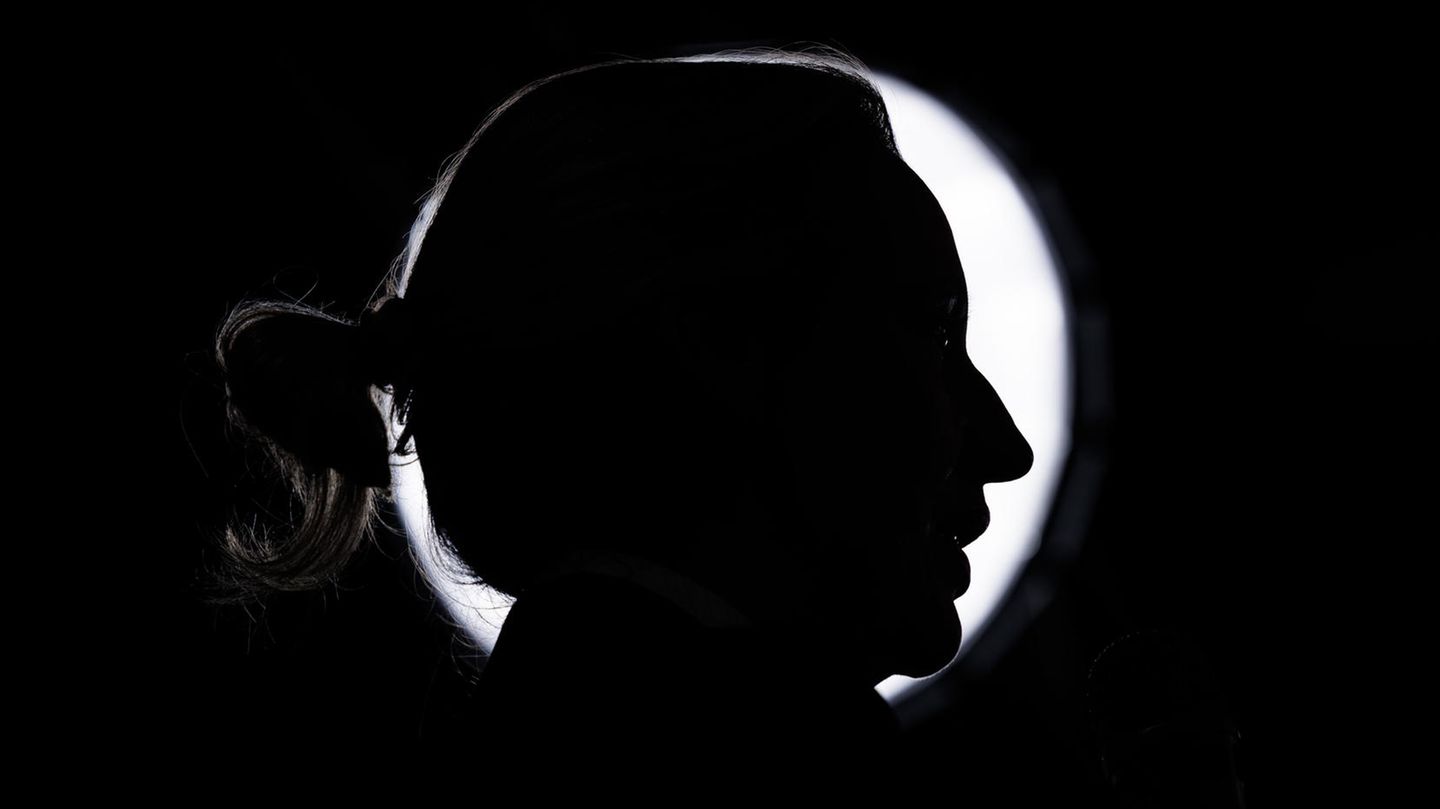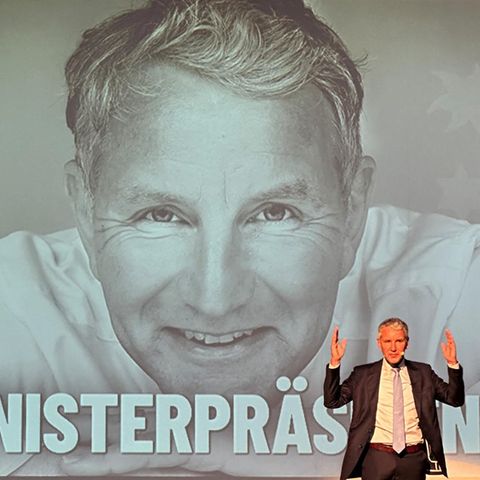Column: Very Near East
AfD, BSW and the East German ramp to power
Copy the current link
Höcke, Weidel, Lafontaine: The east of the republic is at the forefront of the new zeitgeist with a particularly strong AfD – and is once again led by West Germans.
My profession is traditionally accused of exaggerating or even scandalizing the things to be reported. In general, this suspicion is not justified. But sometimes it does.
Competition is becoming tougher and more existential with digitalization. The pressure to sell is growing for media companies and those who work there. This has unpleasant consequences.
But the opposite of the finding also seems correct to me. Even if this may sound strange, we journalists are increasingly prone to understatements. Because reality increasingly seems to me to be a lot more extreme, absurd and blatant than what I can put into words.
All of the Middle East
star-Author Martin Debes reports primarily from the five eastern federal states. In his column, the native of Thuringia writes about what is going on in the entire Middle East – and within himself
At least that is my subjective experience. Last weekend I sat in a hall in Riesa’s industrial area surrounded by angry protests, listening to Alice Weidel – and observing something for which it was difficult to find adequate formulations. I attended, to use a historically uncontaminated word, the dress rehearsal of a planned takeover of power.
What came to mind was what I have learned, i.e. a classifying party conference report and a subsequent analysis. At the same time, reports from the news agencies appeared on the internet: candidate for chancellor elected, election program decided, demonstrators and police officers injured…
Something is currently happening in Germany and around the world that is difficult to depict in its simultaneity and complexity, but also in its radicalism. My automatic impulse is that of many other people: I keep my distance.
The fear party AfD
I don’t mean journalistic distance, which I think is absolutely necessary anyway, but rather a social process. We get used to, choice by choice, something we shouldn’t get used to.
The zeitgeist, what a German word, is wandering once again, and it is wandering backwards. This is, among other things, a reaction to changes, unreasonable demands and uncertainties, but also to well-intentioned decisions that turned out to be wrong and were not corrected consistently enough.
Much of this reaction is explainable, some even understandable. But at its core it is, because that is what this process entails: reactionary. A past that never existed should be brought back. This is a double impossibility – and yet remains an illusion, from which the AfD party in particular lives.
But the only thing that is actually coming back is something that was never really gone, but was only marginalized or covered up: authoritarian imperialism that questions borders. The selfish isolationism that doesn’t care about the rest of the world. Anti-democratic nationalism that separates itself ethnically and culturally.
The AfD fits smoothly into this retro trend. With it there is once again an established parliamentary party in Germany whose tone, style and some of its ideas sound like a century-old echo. And this echo is getting louder and louder. It was almost booming in Riesa.
That’s why I dare to make a prediction. The federal election will finally prove what a majority still does not want to believe: extremism and populism are not phenomena of the so-called accession area.
The BSW and the Bonn Republic
Rather, the East Germans are at the forefront of a development that is similar in Italy, Eastern Europe or the USA – although they, the East Germans, and this is the ironic twist, are mostly led by West Germans like Björn Höcke.
And that brings me to the other party, which is reactionary, is strong in the East and is dominated by West Germans. It met parallel to the AfD in Bonn, the center of the former republic.
On the way back from Riesa I saw the video of the closing speech of the BSW party conference on the train. It was absurd on several levels. Oskar Lafontaine spoke to a party that is now his third and is named after his fourth wife, Sahra Wagenknecht.
He called out to her jovially that she had given “a brilliant speech”. “I really can’t top that. Imagine what noise there would be at the breakfast table tomorrow if I were to give another great speech here.”
As he said this, Wagenknecht took a very long drink from her water glass. As a former prime minister, federal finance minister, SPD chairman and left-wing chairman, the 81-year-old Lafontaine sees himself as the natural patriarch of the BSW. And in his speech he did what he had done for a long time throughout his political life: he reduced the complicated reality to a few plausible theses.
In Bonn it sounded like this: If the sanctions against Moscow were lifted and Russian gas or oil flowed again, energy prices would fall on their own and Germany would be spared from deindustrialization. “The world is that simple.”
Oskar Lafontaine was always like that
Of course, this can be justified if you don’t care about the future of Ukraine and a free Europe. And it was typical Lafontaine.
When he ran as the SPD’s candidate for chancellor against CDU Chancellor Helmut Kohl in 1990, he demanded that East Germans, if they were to move to the Federal Republic, first have to have a place of residence and a place of work. He warned against rapid monetary union – and yes, against deindustrialization of the GDR. And he spoke of “national drunkenness.”
In retrospect, Lafontaine felt vindicated. But the mistakes of reunification do not change the fact that he was wrong on the core issues. He simply ignored the fact that millions of liberated East Germans could not be stopped and that the historical window of opportunity could close again at any time. And he didn’t have an ounce of empathy.
Despite his remarkable intellect, he was incapable of what Kohl always embodied beyond his obvious party and self-interests, namely the belief in a strong and liberal-oriented Europe. Especially since Lafontaine simply didn’t seem to care about the people in East Germany.
That is still the case today. The fact that his wife, who heads the BSW, was born in Jena does little to change the fact that the rest of the leadership team is socialized in West German. And of course Sahra Wagenknecht has also lived in Saarland for a long time.
Similar to the case of the AfD, the East only serves as a ramp for power. Here the parties on the political fringes test their ideas and build their structures in order to be successful in the federal government.
So if we East Germans complain once again that we have been colonized by the West, then we should be honest: we ourselves are responsible for part of it.
You can find all of Martin Debes’ previously published columns .
Source: Stern
I have been working in the news industry for over 6 years, first as a reporter and now as an editor. I have covered politics extensively, and my work has appeared in major newspapers and online news outlets around the world. In addition to my writing, I also contribute regularly to 24 Hours World.







